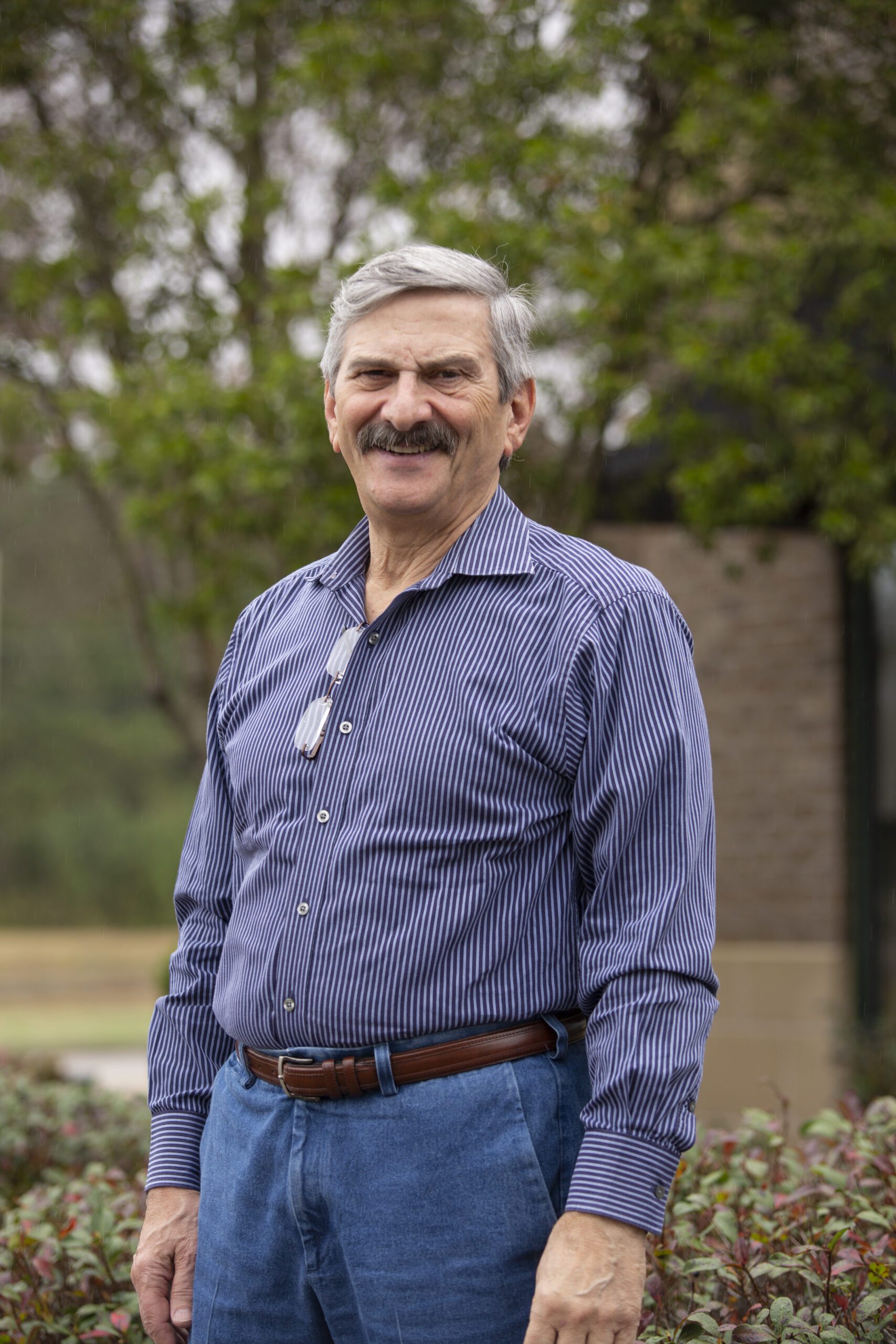U.S. Army Infantry Veteran and Retired Newspaper Reporter
Celebrate Our Veteran gives voice to the stories of the U.S. military veterans living amongst us. The actions of these brave and dedicated people, who have served our country both in active military duty as well as administrative positions, have and continue to contribute to the protection and preservation of us and our country.
We hope that this section of our paper is an opportunity for our community to hear and see veterans with new eyes, and for veterans to receive recognition and honor for their experiences and life journeys.
This month’s Celebrate Our Veteran recounts the story of Kelly Sharbel, as told in his own words.
by Melissa LaScaleia
“I grew up in Nashville, Tennessee. My father was a World War II veteran; he fought in the South Pacific with the United States Marine Corps. He landed in the first assault wave in the 1942 invasion of Guadalcanal and landed on D+2 with the 21st Marine Regiment in the 1945 invasion of Iwo Jima. He and eight others were the only Marines in his rifle company to walk off that island of their own accord.
I have four brothers, and all of us served in the military. My older brother served with the Marine Corps in Vietnam. I was an Army infantry officer at the tail end of the Vietnam War. Two other brothers served as Marine Corps officers, and the other served as an Air Force officer.
I attended Middle Tennessee State University. At that time all able-bodied males in Tennessee State universities were obligated to take two years of ROTC. During my second year, the Tet Offensive occurred in Vietnam, and it occurred to me that when I graduated in two years, the Vietnam conflict would be hot and heavy—and I’d be drafted. I decided that if I was going to serve, then I was going to serve as an officer. So I signed up for advanced ROTC, and upon graduation I was commissioned as an infantry second lieutenant. That required a two year commitment to the Army.
I attended infantry school at Fort Benning, Georgia in 1970, for eight weeks. Back in those days, after commissioning, you attended your assigned branch school for training in the basic tactical and leadership skills needed to lead a platoon. When I reported to Ft. Benning, I was also assigned to the 1st Infantry Division at Fort Riley. I attended Infantry Officers Basic Course and a chemical, biological, and radiological school before reporting to Fort Riley.
The 1st Division, known as the Big Red One, is a mechanized infantry division that included armored personnel carrier-mounted infantry combined with heavy armored units, mobile artillery, and cavalry units. Though I was trained to lead troops in combat and fully expected to do so in Vietnam, I was not called upon to do so. Instead, I was spent my active duty time stationed at Fort Riley, Kansas training to fight the Russians.
In early 1971, the division’s strength was below its authorized number. In the spring, newly trained recruits and draftees reported to the division to prepare to deploy to Europe on a NATO exercise called REFORGER, Army-speak for Reinforce Europe. Units from the United States deployed to Europe for eight weeks during which we conducted tactical and logistical exercises to demonstrate to the Russians that the U.S. and our NATO allies could deploy forces quickly in response to any provocation they might consider.
We trained all summer to do this NATO exercise. At the end of September, we deployed to Germany where we drew all our motorized equipment, including trucks, tanks, armored personnel carriers, etc., from storage facilities. We deployed to places where we’d actually deploy if we had to fight the Russians, and simulated mobility if we had to move in combat.
In that kind of assignment, you’re training all the time. We went to the field every week, practiced with our weapons at the ranges, and spent a lot of time maintaining vehicles. Our objectives were to ensure the troops had the skills and experience they needed and that units operated in coordination with one another. We even did training exercises in winter, sometimes in wind chill temperatures of minus ten degrees on the open prairie in Kansas, because you have to be able to be prepared to function and fight in all conditions.
I spent my two years in the 1st Division as a Rifle Platoon Leader, then I became a Weapon’s Platoon Leader, then a Company Executive Officer, all in the same rifle company. I did that until I was discharged in 1972.
After leaving active duty, I became a newspaper reporter for The Jackson Sun, in Jackson, Tennessee. The newspaper had been a locally and family owned newspaper before being bought by The Des Moines Register in Iowa. I was hired to open a news bureau in Martin, Tennessee, a town of about 8,000 people. In that job, I covered a wide variety of news, feature, and sports stories. It was an interesting and fun job.
I also joined the Tennessee National Guard, serving first in an engineer construction unit and then transferring to the 30th Armored Brigade, another combat unit. We drilled one weekend a month and completed a two-week summer camp.
For me, serving in the Guard was a continuation of my active military service with more focus on the needs of the state; at the same time I was prepared to support active Army missions when called upon to do so.
I left The Jackson Sun and the National Guard to take a position on the staff of Congressman Ed Jones of Tennessee. In my position as Legislative Assistant, I analyzed legislation being considered by the House of Representatives, making sure he knew what was contained in the bills as well as what our constituents were saying about them.
Congressman Jones was a real representative inasmuch he sought to reflect what his district believed in with his choices. I did that for five years before becoming his chief of staff.
The brief time I spent in the military helped me later in my career. I was appointed to a position in the Department of Defense’s legislative affairs during the Clinton administration.
In that role, I provided liaison to the Congress on a variety of issues critical to the Department of Defense and the military services. Eventually, I was named Deputy Assistant Secretary of Defense for Legislative Affairs and worked with numerous outstanding military personnel.
My experience in the Army, as long ago as it had been, proved to be invaluable in communicating with men and women in uniform, and sharing their perspective to Members of Congress.
One thing that surprised me was how often I met with Members of Congress and Congressional staff members who had no military experience. That is not to say that is a good thing or a bad thing, but discussing military requirements and needs to those who have not served required laying a foundation of information that helps them understand why the military services are requesting funding for materiel or other military needs or even why an administration finds it necessary to use military force.
My wife and I brought our family to Myrtle Beach for vacation for about twenty years, and when it was time to retire, we decided to move here permanently. We bought a house in the Market Common in 2016.”

















